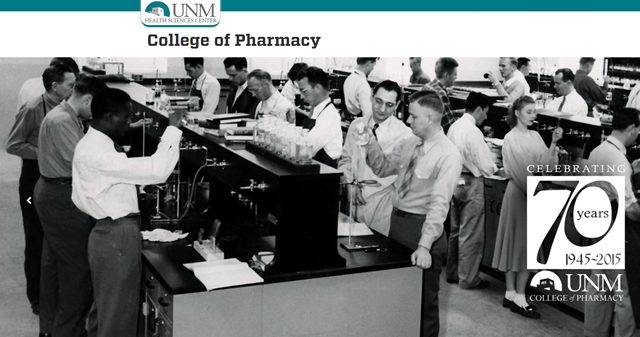
Pharmaceutical Sciences ETDs
Publication Date
Fall 12-16-2022
Abstract
Background: Racial and ethnic health disparities in prostate cancer prevalence, incidence, mortality, quality of life, screening, and treatment constitute the largest of all cancer disparities. These health disparities are associated with higher morbidity and mortality rates in minority populations. Treatment with androgen deprivation therapy (ADT) has been the most widely used therapeutic modality to reduce the progression of prostate cancer to a worse disease stage and relieve potential obstructive symptoms. However, ADT is associated with possible toxic metabolic and cardiovascular (CVS) adverse events that may occur within six months of ADT initiation. These adverse events include metabolic syndrome, type II diabetes, hypertension, dyslipidemia and abdominal obesity. Due to increased recognition of metabolic syndrome risk factor (MSRF) and CVS complications associated with ADT; several national medical and governmental organizations and professional societies have published several science advisory guidelines since 2010. The guidelines aimed to guide healthcare providers caring for prostate cancer patients treated with ADT and to promote interventions that can mitigate ADT related metabolic and CVS complications. Adherence to science advisory guideline recommended screening and treatment of MSRF across racial and ethnic groups of prostate cancer patients initiating ADT is unknown.
Objectives: To assess racial and ethnic differences in the receipt of MSRF screening and treatment among prostate cancer patients treated with ADT at the University of New Mexico Comprehensive Cancer Center (UNMCCC) between 2010 and 2021. The study also sought to evaluate longitudinal changes in MSRF screening and treatment among prostate cancer patients treated with ADT during the study period. Lastly, the study aimed to identify patient and healthcare provider characteristics that influence MSRF among patients treated with ADT during the study period.
Methods: A retrospective observational cohort study of 803 patients treated with ADT for at least six months at the UNMCCC between 2010 and 2021 was conducted. Male adult (≥18 years) patients with a confirmed diagnosis of prostate cancer and who received primary care within the UNM health system during the study period were included. The study index date was the first ADT dose administered during the study period. Patients meeting the study inclusion criteria were followed three months before ADT initiation to 12 months post-ADT initiation to evaluate MSRF screening and treatment. Patients were screened for MSRF if they were referred to primary care provider for MSRF screening/treatment or received blood glucose, lipid profile, and blood pressure screening within six months post-treatment with ADT. Patients were considered treated for MSRF if they were started or continued therapy (within six months of ADT initiation) with an anti-platelet therapy and statin if they have a documented diagnosis of a CVS disease, blood glucose lowering agent if they have a confirmed diagnosis of diabetes mellitus II, and blood pressure lowering agent if they have a confirmed diagnosis of hypertension. For the differences in the proportions of patients receiving MSRF screening/treatment, the independent variable was race/ethnicity, whereas the main dependent variable was the receipt of MSRF screening/treatment. Chi-square test was used to determine differences in the proportions of patients receiving MSRF screening/treatment across racial and ethnic groups of prostate cancer patients treated with ADT. Multiple logistic regression analysis was used to identify patient and healthcare provider characteristics that influence MSRF screening among prostate cancer patients treated with ADT. The main independent variable considered for the analysis was race/ethnicity and the dependent variable was the receipt of MSRF screening. An a-priori power analysis was conducted to determine the minimum required sample size in the current study. A p-value ≤ 0.05 was considered in determining statistical significance in the current study.
Results: Guideline-concordant MSRF screening mean rate approached 23.5%; MSRF treatment rate was 76.9%. We found a significant difference in the proportion of patients receiving screening across all racial and ethnic groups of prostate cancer patients treated with ADT (p=0.032). A significant difference in MSRF screening between Non-Hispanic White (NHW) and Hispanic men (p=0.008) and between African American and Hispanic men (p=0.0401) was observed. The study did not find a significant difference in the proportion of MSRF treatment across all racial and ethnic groups. However, a significant difference in MSRF treatment was found between NHW and Hispanic men (p=0.0214). MSRF screening rates from 13.9% to 35.6% throughout the 10-year data collection period did not show an expected upward trend as the guidelines became more widely distributed. Hispanic men (p=0.0001), American Indian/Alaskan Native (p=0.007), and Asian/pacific islander (p=0.04) had significantly lower odds of having MSRF screening compared to NHW patients. Patients with dyslipidemia at baseline had significantly higher odds of having MSRF screening than patients without a dyslipidemia diagnosis at baseline (p20 years of experience had significantly higher odds of providing MSRF screening than those with (p=0.006).
Conclusions: Racial and ethnic health disparities exist in MSRF screening and treatment among prostate cancer patients treated with ADT. Minority populations had significantly lower odds of having MSRF screening than NHW patients after adjusting for clinical and socio-economic variables. The gap between MSRF screening and MSRF treatment rates indicate that having pre-existing MSRF was associated with closer MSRF treatment regardless of ADT initiation. Closer clinical attention and education, as well as the development and implementation of innovative practice tools and interventions to optimize MSRF screening and treatment are warranted to mitigate the harmful short & long-term effects of ADT in prostate cancer patients.
Fourth Committee Member
Todd Thompson, PhD
First Committee Member (Chair)
Matthew Borrego, PhD
Degree Name
Pharmaceutical Sciences
Second Committee Member
Melissa Roberts, PhD
Level of Degree
Doctoral
Third Committee Member
Neda Hashemi, MD
Department Name
College of Pharmacy
Language
English
Document Type
Dissertation
Keywords
Prostate Cancer, Health Disparities, Metabolic Syndrome, Screening, Treatment, Androgen Deprivation Therapy.
Recommended Citation
Barqawi, Yazan K.. "Racial and Ethnic Differences in the Receipt of Metabolic Syndrome Risk Factor Screening and Treatment Among Prostate Cancer Patients Treated with Androgen Deprivation Therapy.." (2022). https://digitalrepository.unm.edu/phrm_etds/32
Electronic Release -Barqawi.pdf (201 kB)
Information Coversheet - Barqawi.pdf (130 kB)
Included in
Pharmacoeconomics and Pharmaceutical Economics Commons, Pharmacy Administration, Policy and Regulation Commons
